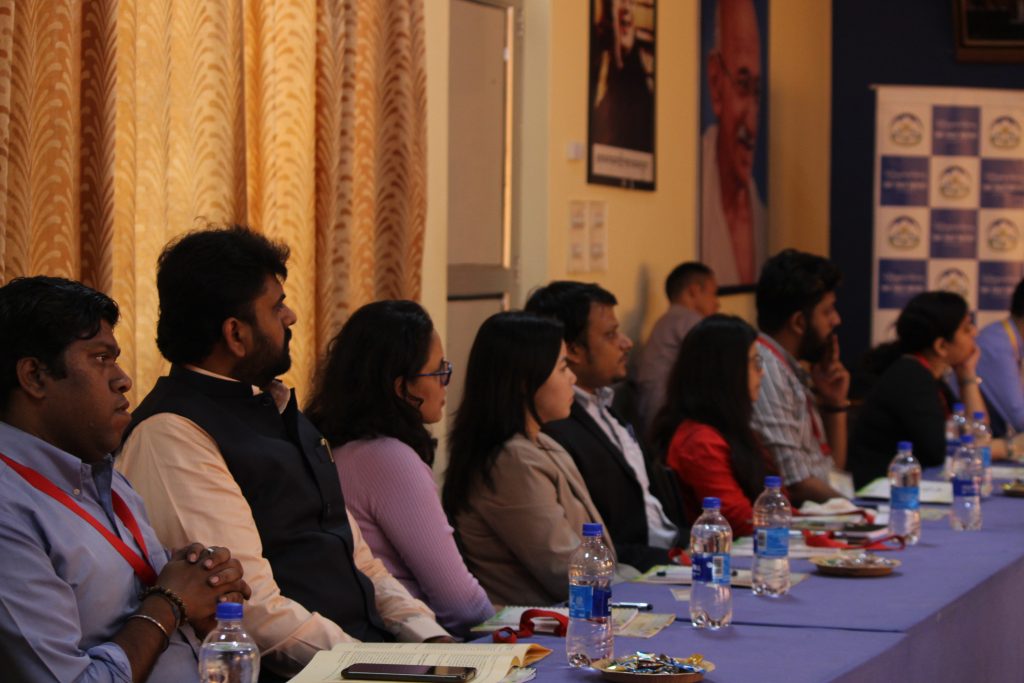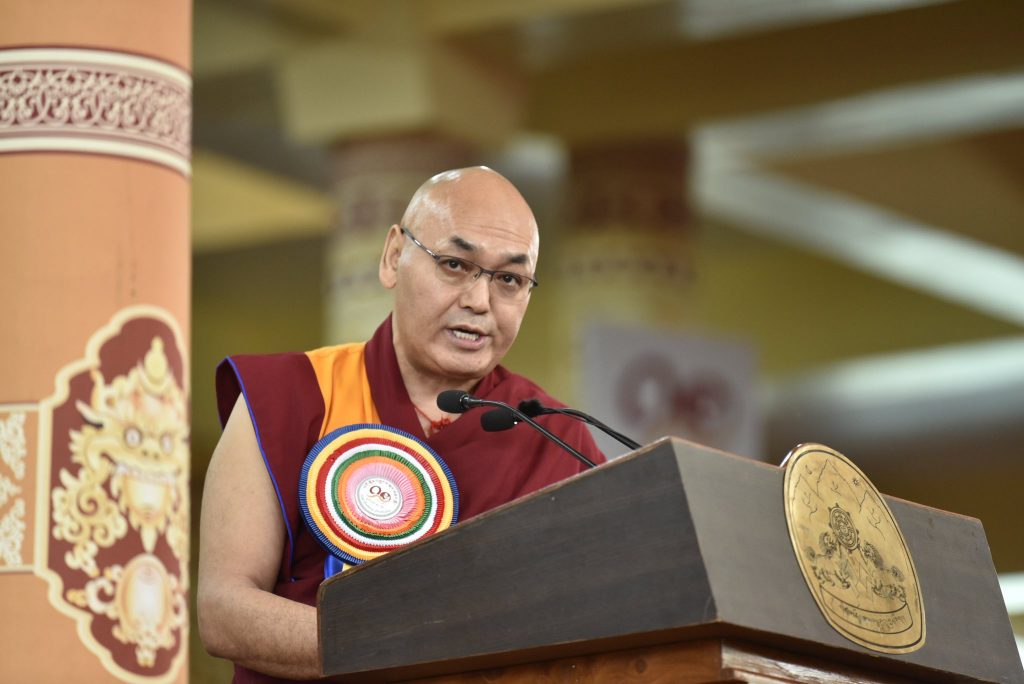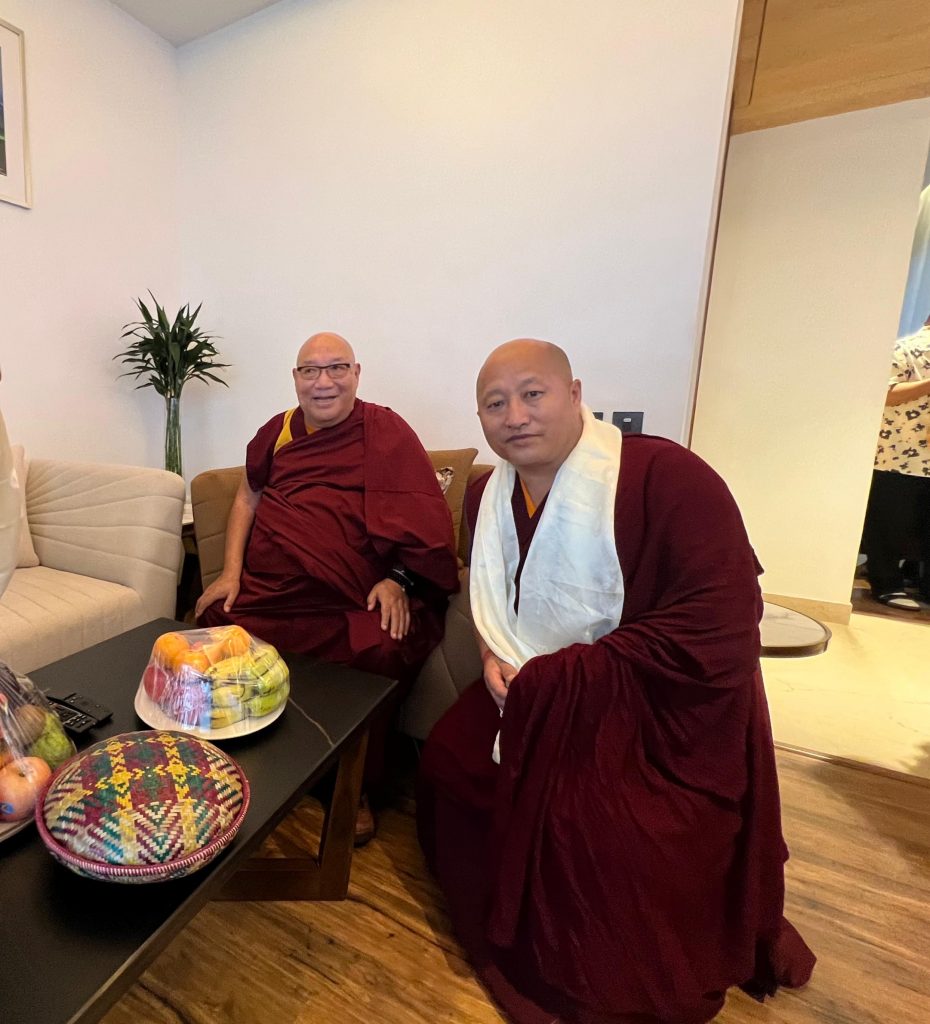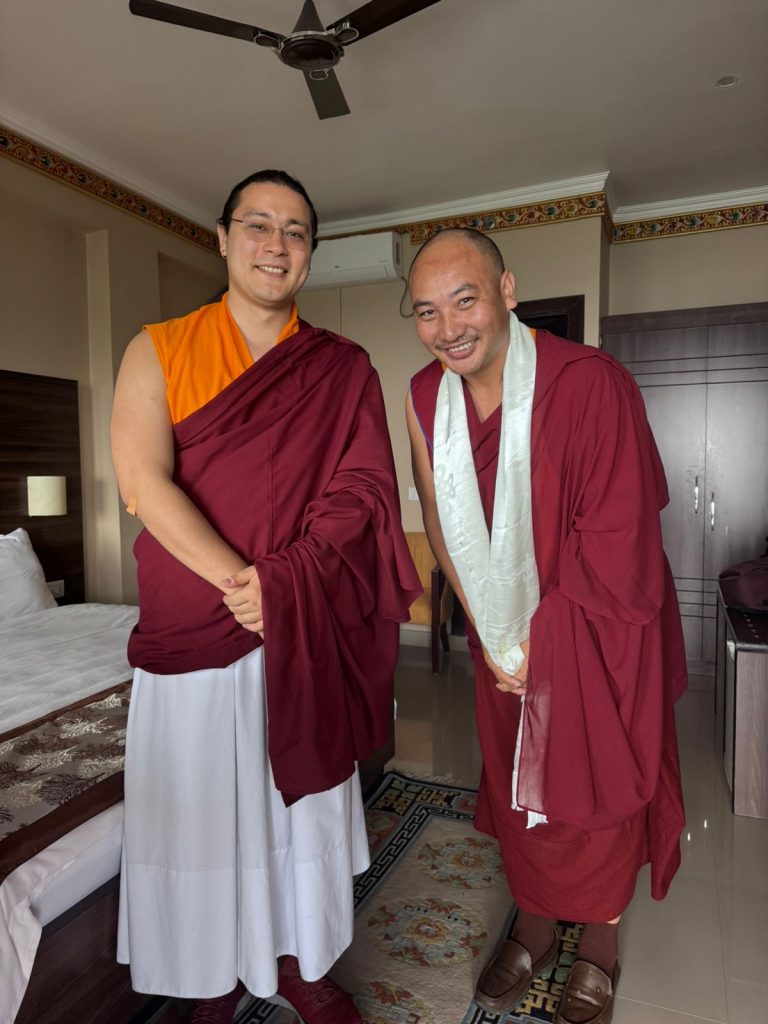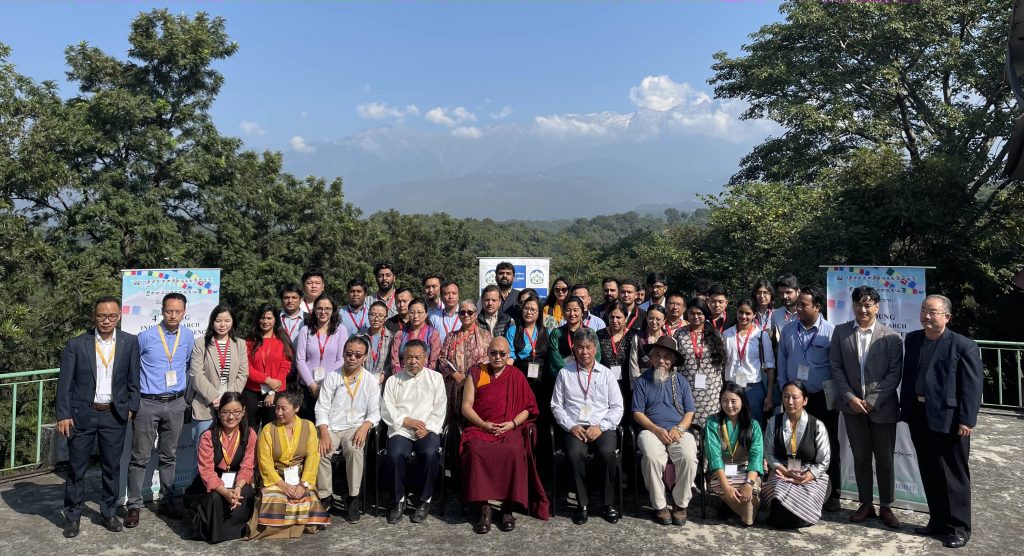
Dharamsala: Khenpo Sonam Tenphel, the Speaker of the Tibetan Parliament-in-Exile, graced the 4th Young Indian Research Scholars’ Conference organized by the Tibet Policy Institute of CTA at the College for Higher Tibetan Studies Sarah (CHTS) on 17th October 2022.
The inaugural of the conference started with the lighting of a butter lamp by the Chief Guest, Speaker Khenpo Sonam Tenphel, followed by a welcome address by Mr. Kunga Gyaltsen, Deputy Director of the Tibet Policy Institute (TPI); the inaugural address by Speaker Khenpo Sonam Tenphel; keynote address by Professor Tanka Bahadur Subba, Former Vice-Chancellor of the University of Sikkim; and vote of thanks by Dr. Tenzin Desal, Senior Fellow, Tibet Policy Institute (TPI).
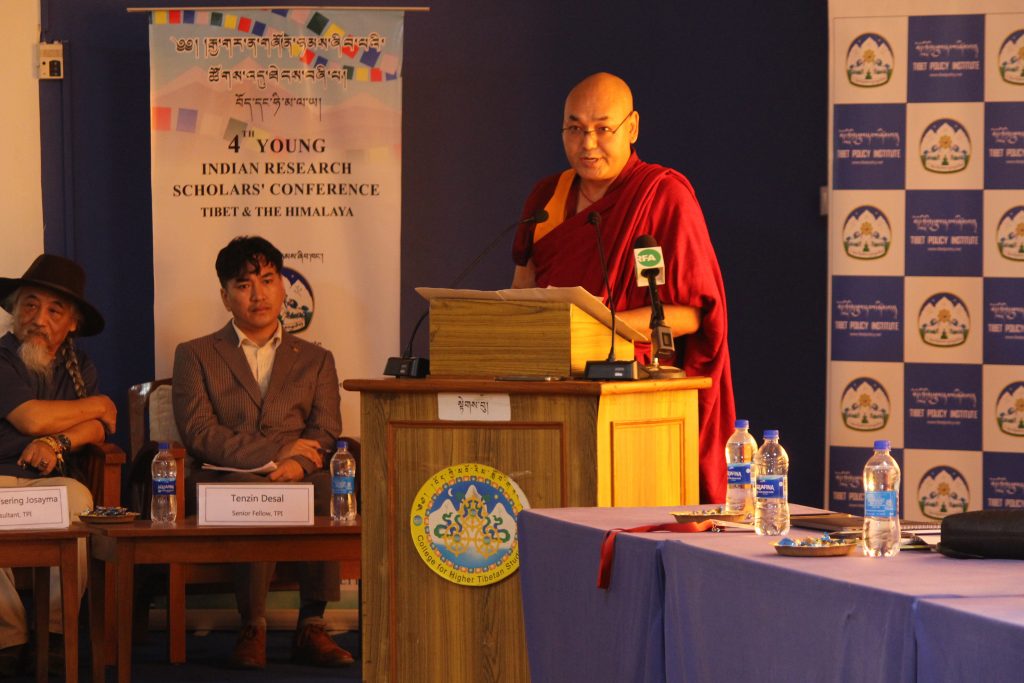
Greeting the participants of the conference, the Speaker started his address by welcoming all the young Indian research scholars and by lauding the Tibet Policy Institute (TPI) for creating a common platform to share their research works.
Shedding some light on the historical facts of Tibet, he said that Tibet is the highest plateau on earth with an average altitude of 13,000 feet above sea level, and is called the roof of the world. Since eight major rivers of Asia originate from Tibet and it has the largest reserve of freshwater outside the Arctic and Antarctic, it is also popularly called the Third Pole. Tibet has a written history of its own with its own distinct language, currency, and national flag unlike China. It remained a buffer zone between the two most populous nations of the world India and China till Communist China forcefully and illegally invaded Tibet in 1959. His Holiness the Dalai Lama along with 80,000 Tibetans sought refuge in India and rebuild its existence from scratch in India. The thriving Tibetan community in India is grateful to the consecutive governments of India and its people. “When Chelas were in trouble Guru helped them to preserve their unique language, culture, and identity in India. So, I take this opportunity to thank India and its people on behalf of Tibetans all over the world,” he added.
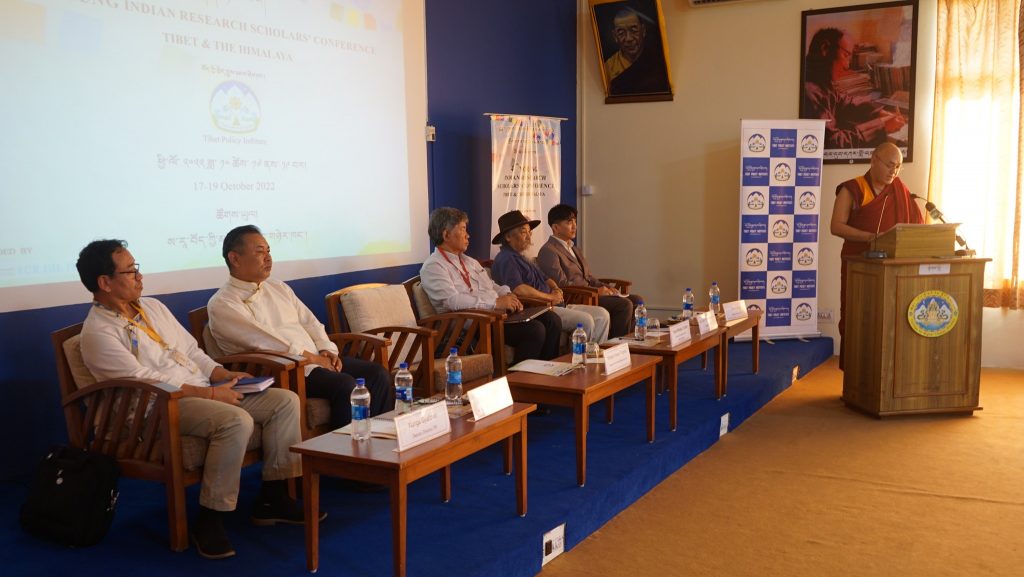
Speaking on the current critical situation inside Tibet, the Speaker said, “Tibet is going through the darkest and the most painful period in our history. The situation inside Tibet still remains grim and alarming despite China’s lofty claims of having liberated and developed it. With the shrinking space to show dissent to the flawed policies of the PRC, since 2009, 157 Tibetans from every sector of society have set fire to themselves in protest against China’s repressive policies that include political repression, cultural assimilation, population transfer, racial discrimination, economic and educational marginalization, massive environmental destruction and indiscriminate exploitation of minerals, water, and forest resources. Each of these could be a case study and a topic of research in itself for you.”
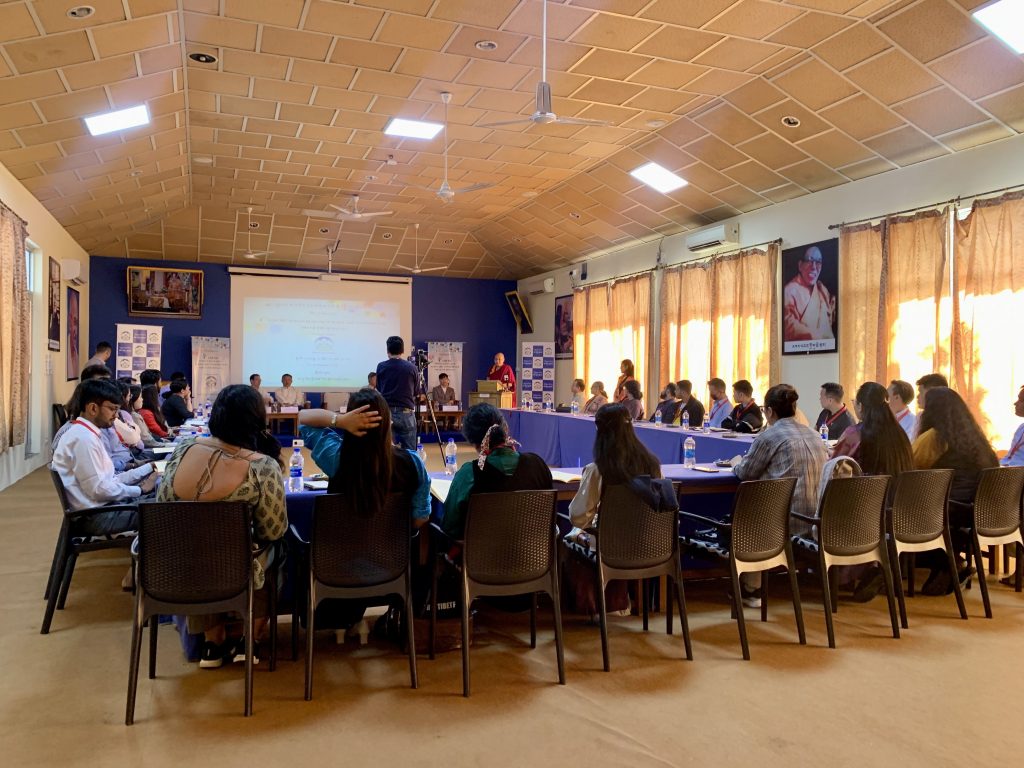
“Since the second term of XI Jinping, we are experiencing a second wave of Cultural Revolution in Tibet. Every symbol of Buddhism is attacked and intellectual Tibetans who celebrate unique cultures and ways of life are targeted on the pretext of national security and stability and put them behind the bars. Tibet is turned into a surveillance state with more CC TV than the windows. CCP is limiting basic human rights with face mapping, biometrics, and DNA tests. With the declared intention of capturing the next Dalai Lama, CCP is eying to control the soul and emotions of Tibetan people, driving them to the height of desperation.”
He further added, “Unlike Han Chinese who can move freely in Tibet, Tibetans are prisoners in their own land. Tibetans need multiple ID cards to move within Tibet. Although on paper China pursue a bilingual education policy in Tibet but in reality the Chinese language is imposed in all Tibetan schools as a means of instruction. Teaching the Tibetan language at home and in monasteries during weekend and vacations are criminalized. According to Tibet Action Institute, more than 800,000 children aged 5- 18 are forcefully taken away from their parents to put in colonial boarding schools where the child’s cultural identity is erased and are indoctrinated.”
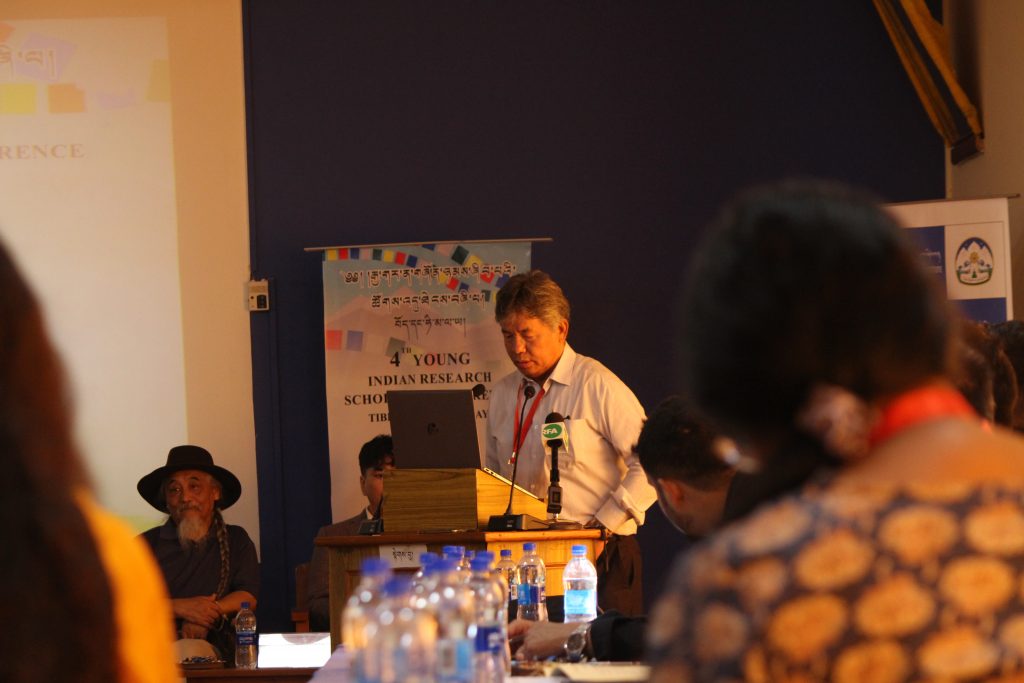
And speaking on the significance of the Tibetan plateau and its ecosystem, the Speaker added, “China is disrupting the natural flow of the rivers by diverting them to China and pursuing a series of mega dams to create their hydropower over the downstream countries. Unbridled exploitation of Tibet’s mineral resources is contaminating the rivers with soil erosion. This poses aquatic and terrestrial ecosystems to degrade and poses a great threat to the downstream countries. Thus, China is playing havoc with Tibet’s fragile ecosystem making the climate security of Asian countries critical and thereby impacting the world’s climatic condition.”
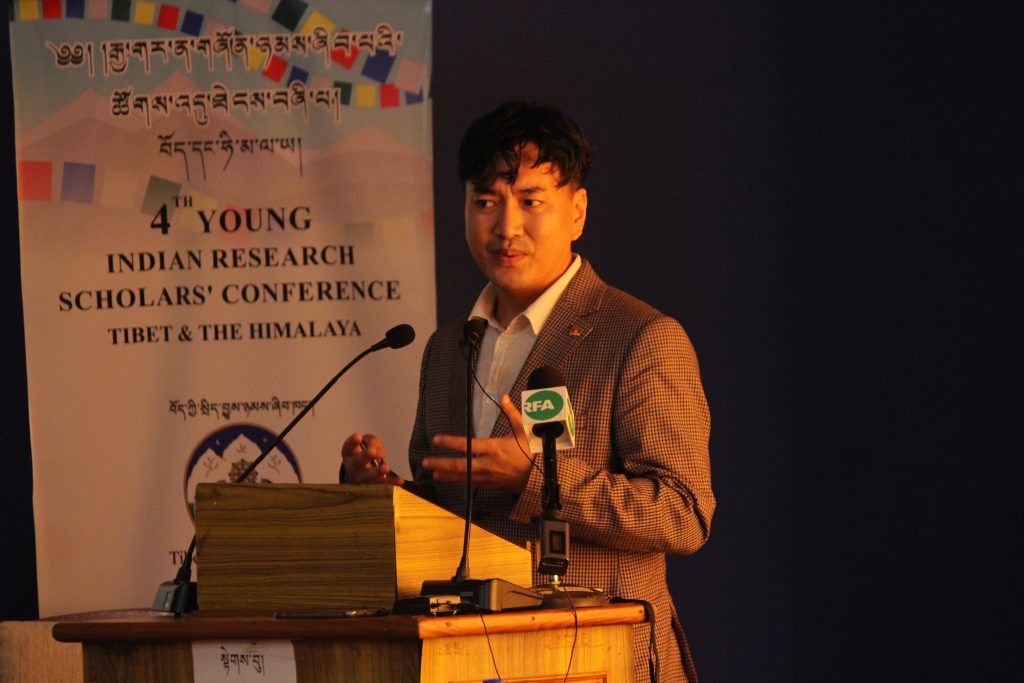
“Tibetan Parliament in exile is committed to the Middle Way Policy envisioned by His Holiness and adopted by the Tibetan Parliament in Exile. For it to work we must speak out on the status of Tibet. We must counter Beijing’s claim that Tibet was part of China since antiquity. We need to make it clear that Tibet is an occupied country that it was never part of China historically and that it was forcefully and illegally invaded by Communist China. I would encourage some of your research on the historical facts of Tibet and China and prove to the world that India never had a common border with China.”
The Speaker ended his speech by advising the young research scholars to be the leaders of tomorrow who would dispel the darkness of misinformation that Communist China is spreading to mislead the world.
